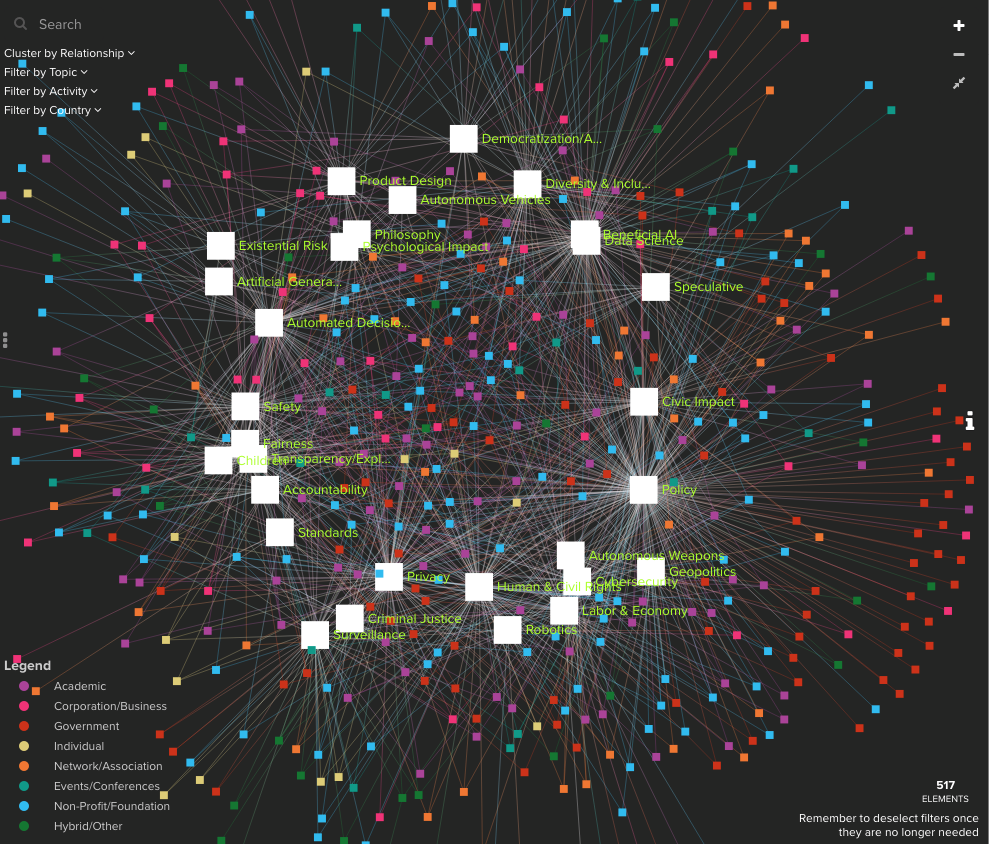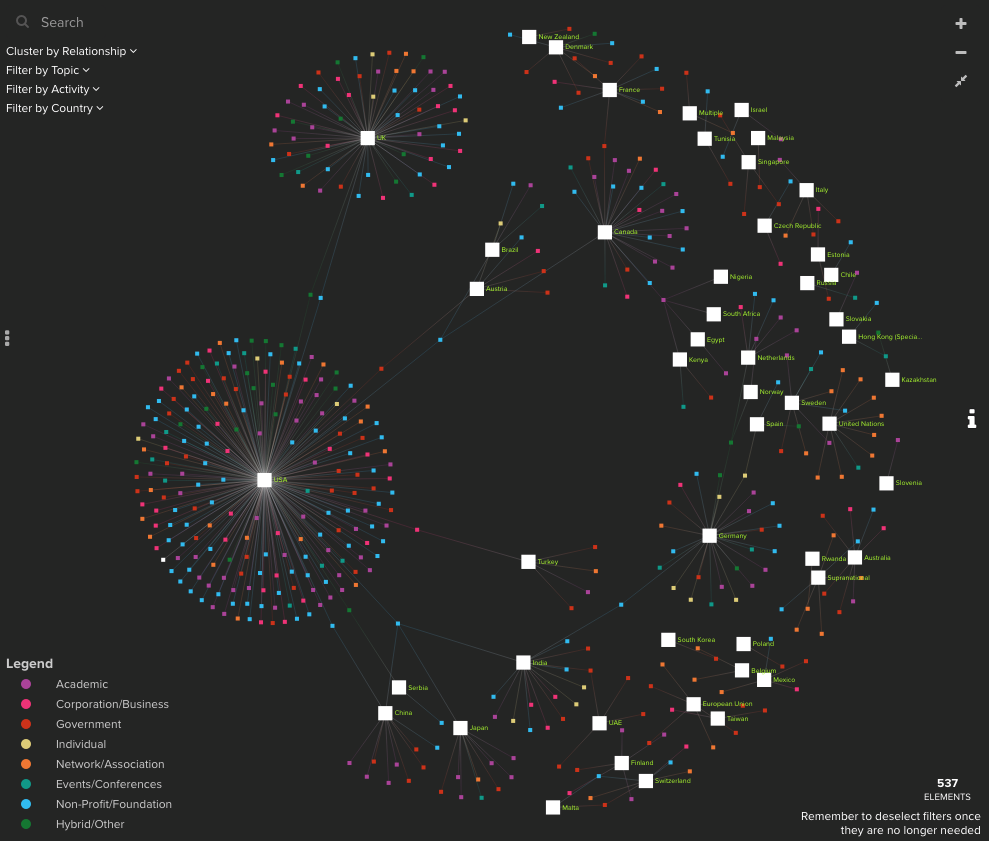AI Ethics & Governance Map Launches
As the AI industry grows, so do the voices concerned with its ethics and governance.

Keeping up with the increasing number of organizations, stakeholders, and projects addressing these problems globally can be difficult. The rapid speed of innovation driving industry and policy dialogue amplifies the complexity of AI ethics and governance still further.
Fluxus Landscape: An Expansive View of AI Ethics and Governance is an art and research project by Şerife Wong, created in partnership with the Center for Advanced Study in the Behavioral Sciences (CASBS) at Stanford University with support from The Stanford Institute for Human-Centered Artificial Intelligence (HAI). The project maps and categorizes about 500 AI ethics and governance stakeholders and actors. Its goals are both practical and artistic: to help the global community interested in AI ethics and governance discover new organizations, and encourage a broader, more nuanced perspective on the AI ethics and governance landscape.
For the purposes of this project, AI ethics and governance includes private and public actors working on: fairness, transparency, and accountability; governance, national frameworks, and labor disruption; societal impacts in issue areas such as privacy, criminal justice, and human and civil rights; AI safety, security, and control; and advocacy, collaboration, and democratization initiatives. A small number of actors – primarily artists – whose work demonstrates creative exploration in AI ethics are also included. “AI for good” companies or organizations advocating for the beneficial use of AI are not included unless they also work on harmful societal impacts (real and potential) of AI. Educational programs, such as those featuring classes on AI ethics, are not included; those educating underrepresented groups in AI are included if the organization's mission statement centers on education as part of an ethical goal.

Fluxus Landscape enables users to explore AI ethics consultancies, ethics initiatives at tech companies, governing bodies, AI governance task forces, AI legislation, university research centers, and significant conferences. Innovative and creative initiatives in civil society are especially well represented through a selection of trade associations, non-profits, worker movements, grassroots activist groups, artists, and more. The artist prompts audiences to consider and question where they draw their own boundaries concerning groups that should be included in AI policy conversations. Navigating the map reveals organizations with divergent political and economic agendas demonstrating complex tensions and the difficulties of finding consensus in AI ethics and governance.
The map was created on network mapping platform Kumu and was edited and refined with feedback from over 20 individuals from a variety of sectors. It is shared publicly through Creative Commons license CC BY-SA 4.0 and encourages collaboration and building upon the work. Kumu users may make a replica of the map and edit or add their own data for analytical studies.
Şerife Wong is a Bay Area artist and AI ethics advocate. In 2018, she founded Icarus Salon, an initiative to enrich the dialogue on the ethics of emerging technology. She created the Impact Residency at Autodesk’s Pier 9 Technology Center (2015-2018) where she worked with over 100 leading creative technologists exploring the future of robotics, AR/VR, engineering, 3D printing, and architecture. Şerife Wong has also worked on the development team at the Electronic Frontier Foundation. As an artist, she has had solo art exhibits in New York, Vienna, and Mexico City, and exhibited internationally at venues such as Art Basel Miami, Shanghai Art Fair, FIAC Paris, ARCO Madrid, and Art Cologne. In 2019, she was a jury member at Ars Electronica for STARTS, the grand prize of the European Commission honoring Innovation in Technology, Industry and Society stimulated by the Arts and was on the scientific advisory panel for USAID on the future use of AI to address humanitarian challenges.
Founded in 1954, the Center for Advanced Study in the Behavioral Sciences (CASBS) at Stanford University is renowned as a place where deep thinkers from diverse disciplines and communities come together to confront critical issues of our time. At CASBS, boundaries and assumptions are challenged and cross-disciplinary thinking is the norm. The Center has hosted generations of distinguished scholars and scientists who, in the spirit of collaboration, form an enduring community that advances our understanding of the full range of human beliefs, behaviors, interactions, and institutions.
